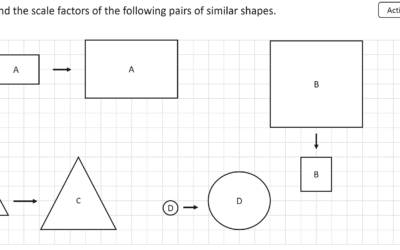Ever taught a lesson, assessed it, and then realized you could’ve taught it differently while it was happening? That’s the power gap Assessment for Learning (AFL) fills. It flips assessment from just scoring to real-time insights that tweak teaching for better results right away.
The Gist: Guiding Progress, Not Just Judging It
At its heart, AFL is about using ongoing, formative checks to inform teaching and guide students’ next steps. It’s not about the grade; it’s about the growth. Pioneered by Paul Black and Dylan Wiliam, AFL transforms assessment into a dynamic dialogue in the classroom.
The Breakdown: The Loop of Learning
The process is simple, yet profound:
- Gather Information: Quick checks (questions, observations, mini-quizzes) reveal student understanding.
- Give Feedback: Timely, targeted feedback (not just a score) helps students understand what they need to do to improve.
- Adapt Instruction: You adjust your teaching based on student needs, ensuring everyone gets what they need to succeed.
Recent research from 2024 emphasizes that the effectiveness of formative assessment hinges on the attitudes of both teachers and students, underscoring the need for a collaborative approach.
The Evidence: Big Gains, Especially for Those Who Need It
The data is compelling: AFL consistently delivers significant academic wins.
- A 2023 meta-analysis covering 250 studies found that AFL boosted achievement by a notable 0.4-0.8 effect size, equivalent to gaining 4-8 months in reading skills through targeted feedback.
- 2024 trials with 1,200 pupils in Germany saw 22% gains in writing quality when teachers used daily AFL with precise rubrics.
- A 2025 study (using the ASSISTments platform) showed high-quality formative assessment could lead to significant math improvements (0.18 standard deviations) for 7th graders, with an even greater impact (0.29 standard deviations) for students below the median. This highlights its potential to close achievement gaps.
The Catch: Time and Training
While powerful, AFL demands time and careful implementation. A 2022 critique by Hattie noted smaller effects in large classes where personalized feedback is tough to deliver consistently. Challenges include teacher training, student misuse of feedback, and fitting it into packed curricula. The good news? The rise of AI offers promising solutions for automating feedback and personalizing assessment, making it more feasible even in larger settings.
Putting It to Work: Embed It Daily
Bring AFL into your math class (or any subject!) by making checks feel natural and useful:
- Mid-lesson check-ins: Use quick polling tools (or just thumbs up/down) to gauge understanding of a new formula. If most thumbs are down, regroup! A 2023 UK study found this reduced algebra errors by 18%.
- Targeted feedback: Instead of “Wrong,” write “Great start! Try checking your signs here.” A 2024 Dutch trial showed this type of guided feedback led to 20% faster improvement in geometry proofs.
- Encourage self-correction: Have students compare their work against a model answer or a rubric before submitting. This fosters independence and self-regulation.
The Bottom Line: Assessment isn’t just of learning; it’s for learning.
Your Turn: Choose one small, low-stakes check-in you can embed in tomorrow’s lesson to gather real-time data on student understanding.









0 Comments